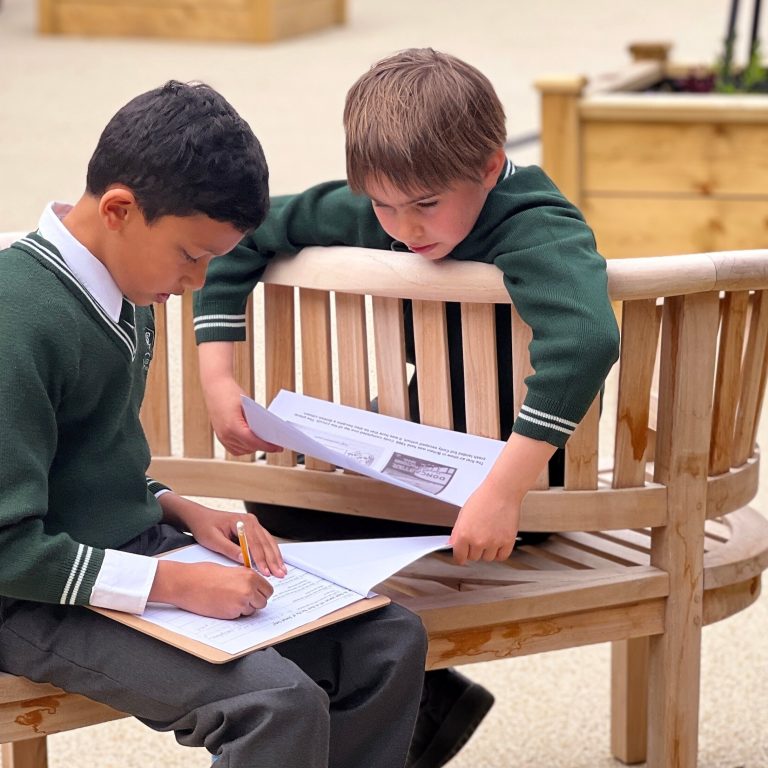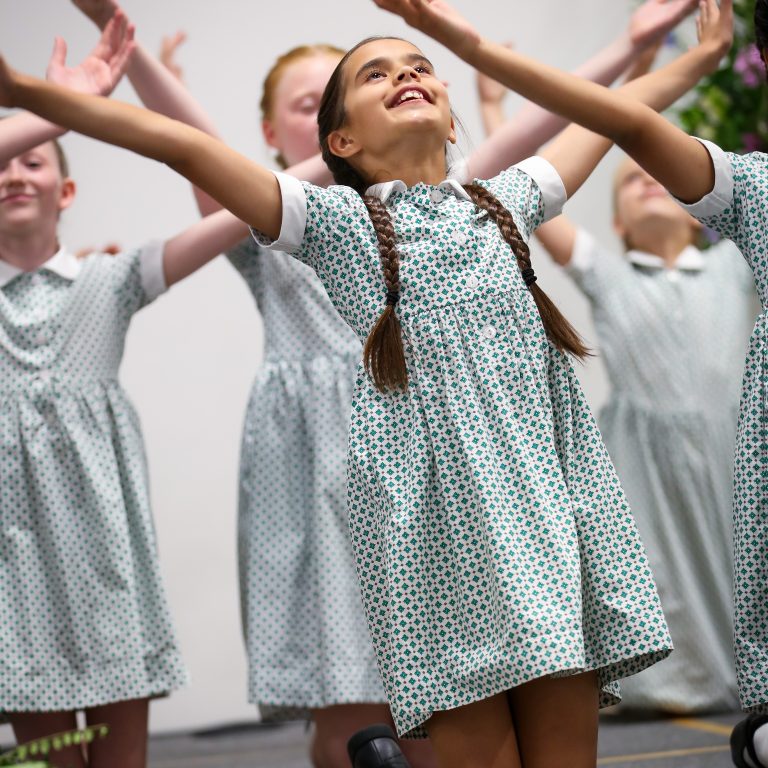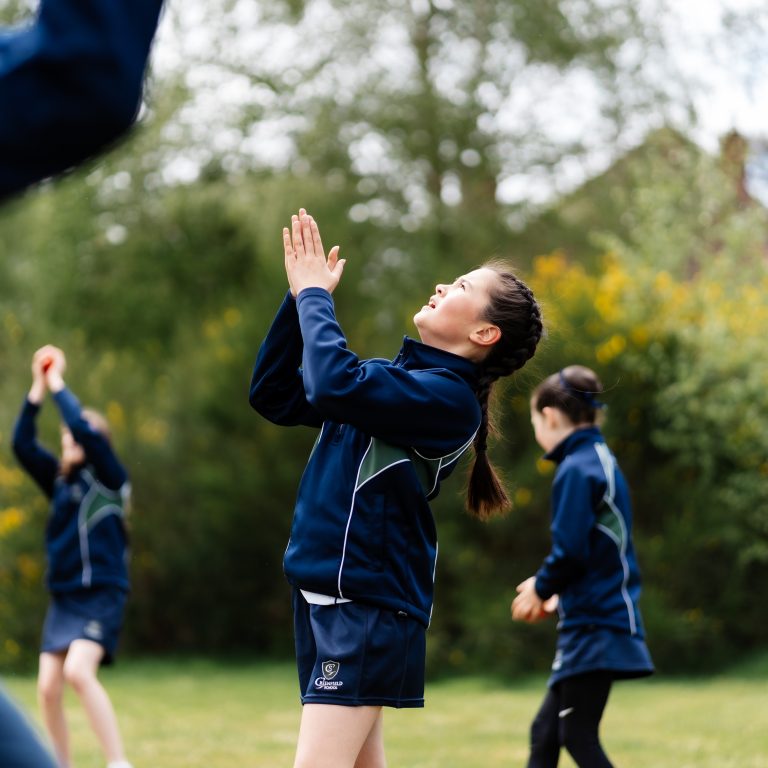At Greenfield School, a strong emphasis is placed on reading for children’s development. Exploring creative approaches to literacy and developing a love of reading are key tactics used to help children reach their full potential. Read on to explore why fostering a love of reading is so crucial during childhood.
Developing a Love of Reading
Posted: 2nd February 2024
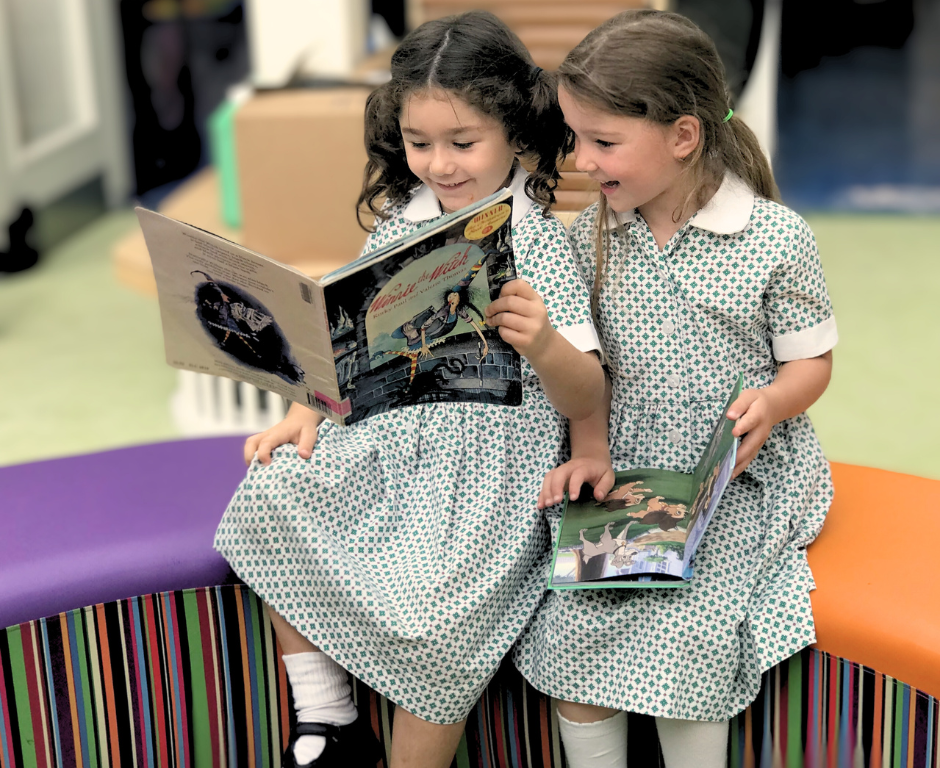
Why Does Reading Matter?
Reading plays a crucial role in children’s development, influencing various aspects of their cognitive, emotional and social growth. The impact of reading on a child’s development is many-layered and multiple studies have highlighted its benefits; the overall effect on learning potential is vast. As such, teachers and parents are in a great position to ensure reading is a key part of children’s daily routines. Teaching practitioners are always exploring new ways to ensure that children succeed and enjoy their reading journeys.
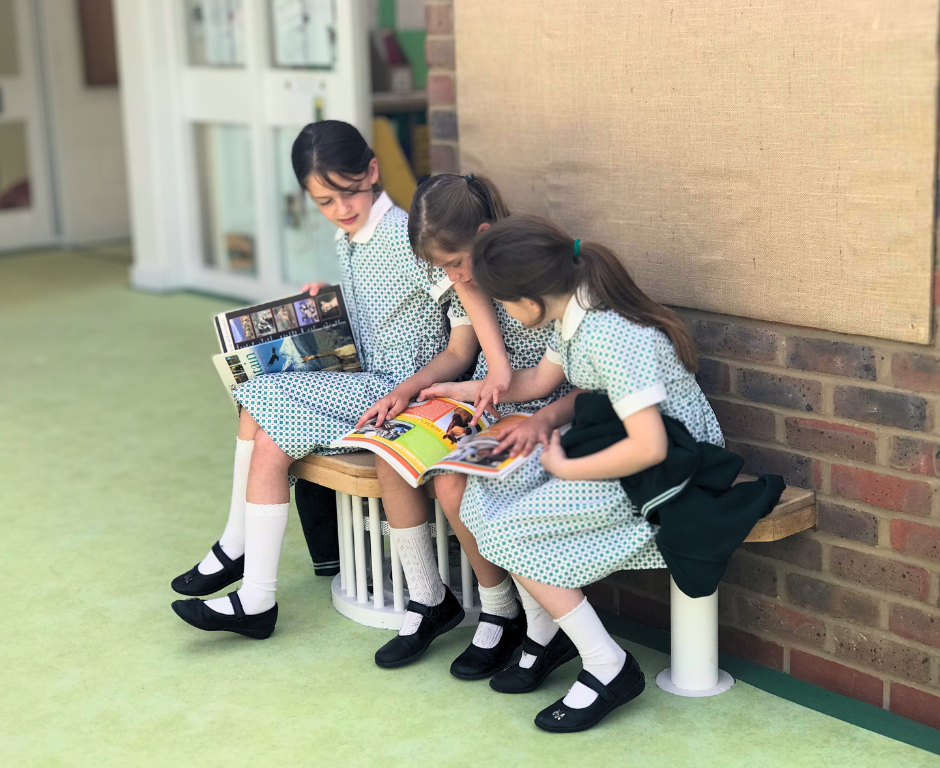
What can parents do?
By starting the journey from birth, parents are giving their child the opportunity to be the best they can be – children who read and enjoy books for pleasure do better in a wide range of subjects and it also positively impacts children’s wellbeing.
45% of 0-2-year-olds are read to by a parent every day
58% of 3-4-year-olds are read to every day; in part to get them “school ready”.
By age 5-7, the percentage of parents reading to children drops back to 44% as the notion takes hold that reading is exclusive to the classroom.
UNESCO, 2024
Continuing parental engagement is a huge part of the reading success story. Incorporating digital resources (educational apps, audiobooks, e-books) is essential but balancing screen time is vital to ensure these tools complement traditional reading strategies.
49% of children are now spending 1-3 hours on a screen (a dramatic rise over the last 10 years from 11% in 2014).
UNESCO, 2024
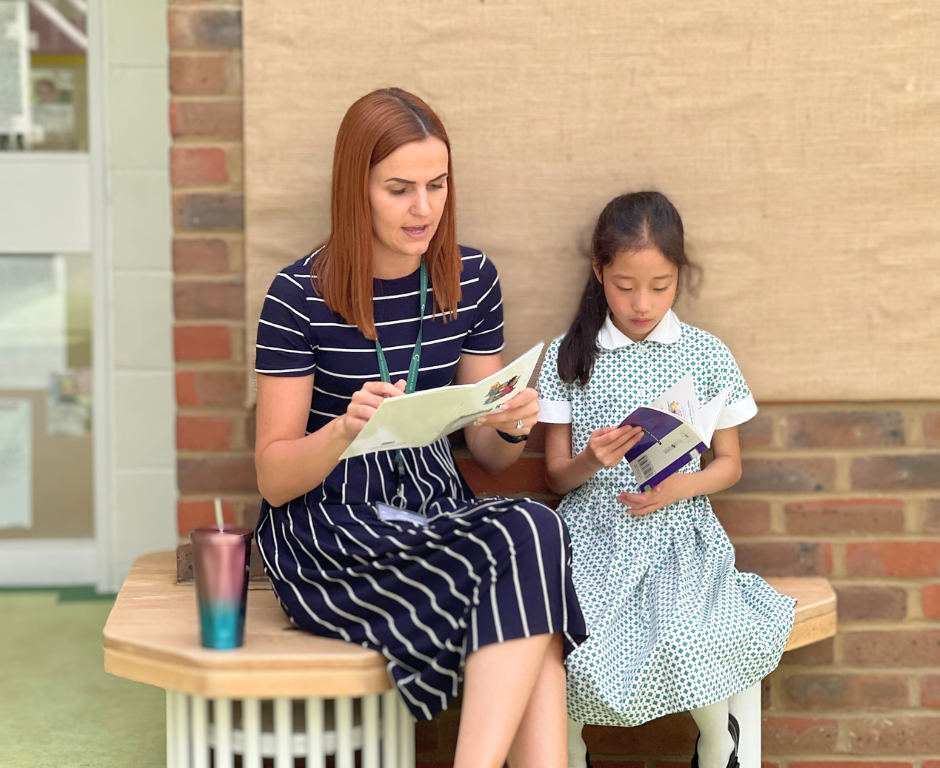
Growth in Language
When engaging in reading, a person’s language improves exponentially – not just through syntax and vocabulary but our ability to convey complex ideas. Here are a few of the immediate impacts reading has on children:
- Vocabulary: Reading exposes children to a rich and varied vocabulary. Books often contain words that might not be part of everyday conversations, contributing to a broader language base.
- Emotional intelligence: Stories often contain characters with whom children can identify. Reading about characters facing different challenges helps children understand and manage their own emotions. It also promotes empathy by exposing them to various feelings and perspectives. When reading a book, the reader puts themselves in the story in front of them. This allows the reader to develop empathy as they experience the lives of other characters and can identify with how they are feeling. Children can then use this understanding to empathise in the real world with other people. Additionally, children will gain a greater understanding of emotions, which can help them understand their own emotions and those of others, dramatically improving their social development.
- Sentence structure: Reading exposes children to different language patterns and sentence structures. They learn about grammar, syntax, and proper language usage by observing how words are arranged in written form.
- Communication skills: They learn how to express ideas clearly, understand the perspectives of others, and convey their thoughts in a coherent manner.
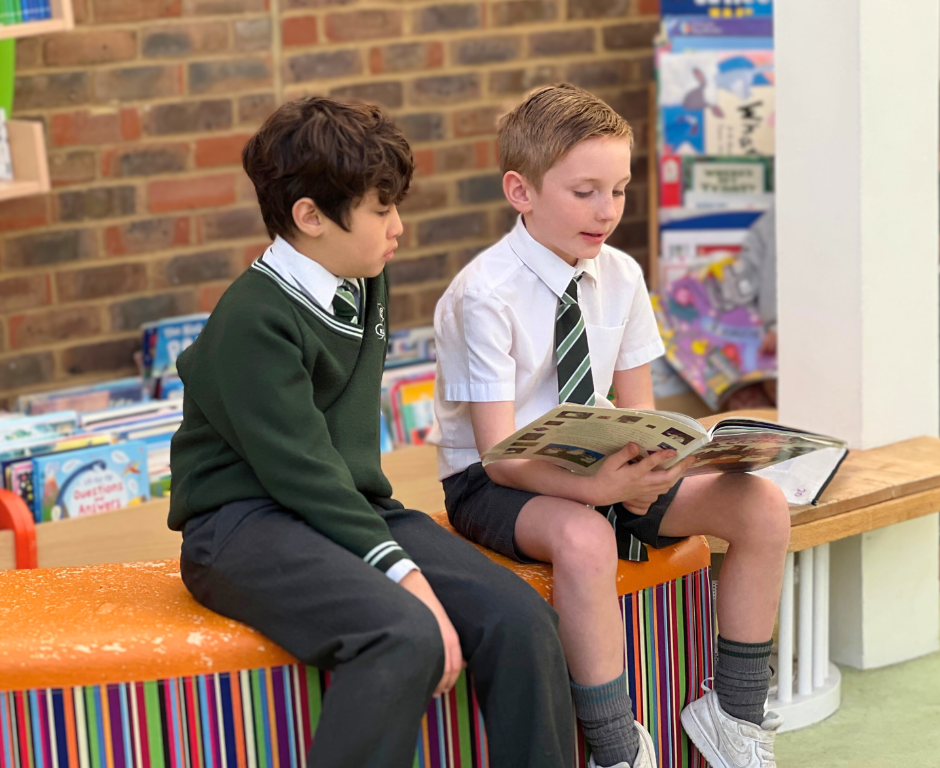
Imagination and Creativity
Reading allows children to be transported from one world to another. Between the pages of a book, they can become immersed in the lives of fictional characters and learn about a culture entirely different from their own. Exposure to a range of books allows children to explore concepts beyond their immediate experiences fostering creativity and imagination, including diverse cultures, traditions, and perspectives. They experience a broader understanding of the world which encourages an appreciation for diversity.
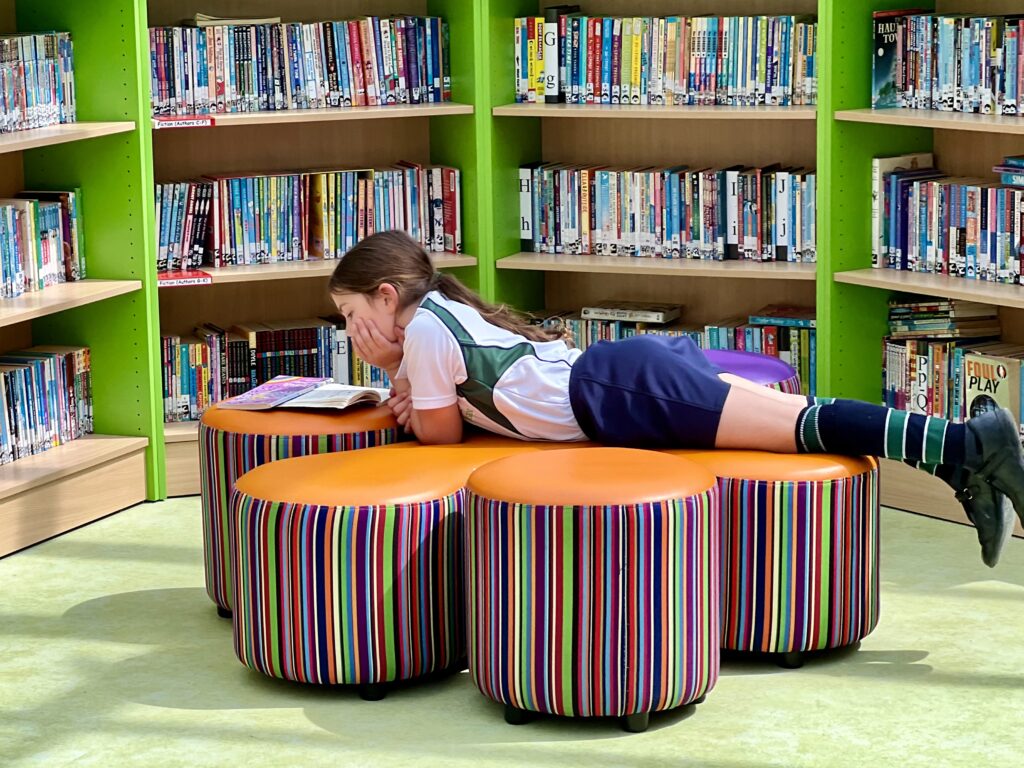
Building Cognitive Skills
Reading enhances cognitive abilities such as critical thinking, problem-solving, and concentration. As children engage with stories, they learn to analyse information, make connections, and draw conclusions, fostering the development of advanced cognitive skills. A book can take us anywhere: to another city, to a different country, or even to an alternative world. In reading a story, a child learns about people, places, and events that they couldn’t learn about otherwise, giving children a deeper understanding of the world around them and cultures that are different from their own. Moreover, reading requires focus and attention. As children immerse themselves in a book, they learn the true value of sustained effort and attention; subsequently their improved concentration will ultimately translate into better academic performance and enhanced life skills.
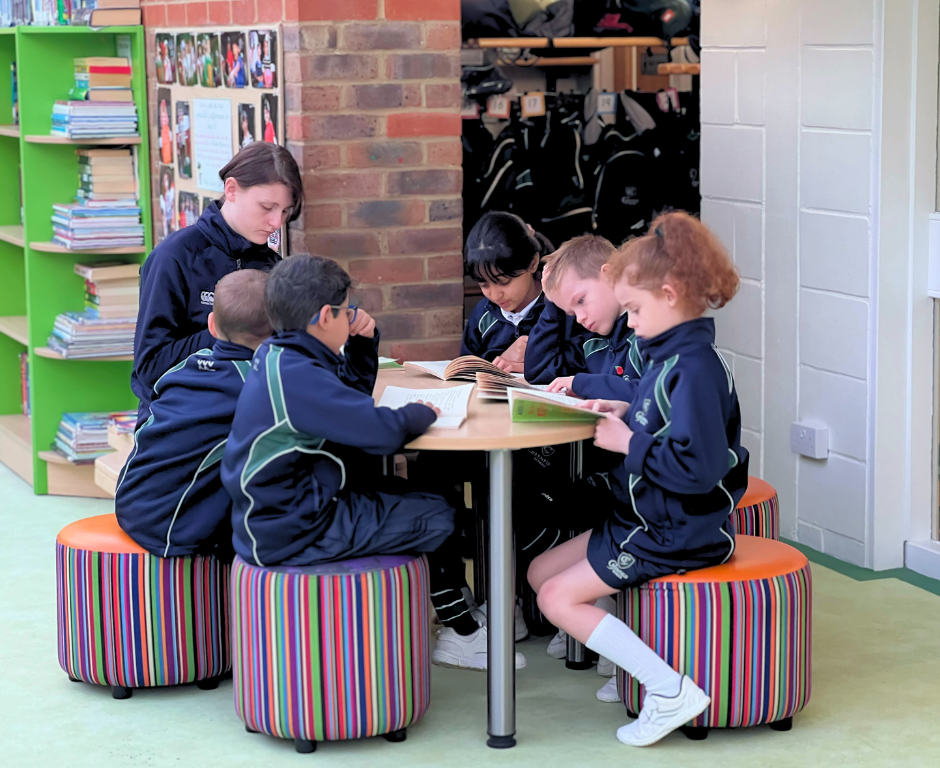
Relationships and Love of Learning
Reading at a young age lays the foundation for a lifelong love of reading. Children who associate reading with pleasure and enjoyment are more likely to continue reading throughout their lives. The opportunities reading gives children to find out things for themselves and share them with adults and peers. In addition, reading with caregivers or peers creates positive social experiences. Shared reading sessions provide opportunities for bonding, communication, and shared enjoyment; strengthening their relationships through social interaction around books.
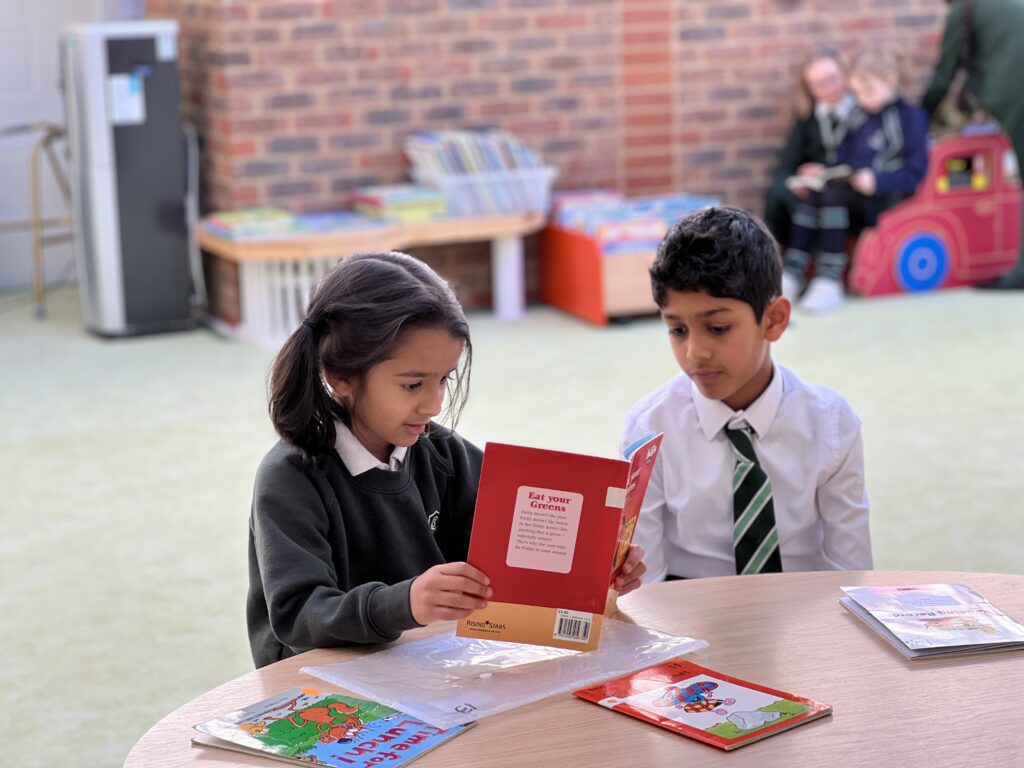
Future Preparation and Life-Long Success
In today’s information-driven world, strong reading skills are essential for success in various fields. Reading regularly from a young age prepares children for the demands of education and the workplace. It is therefore crucial that there is an environment in school where reading skills can be developed and nurtured.
Although the reading process varies depending on the age of the cohort being taught, the fundamental principles of reading success are the same. Below is a “whistle stop tour” of some of the initiatives at Greenfield and why reading focus is prioritised at every stage of child development.
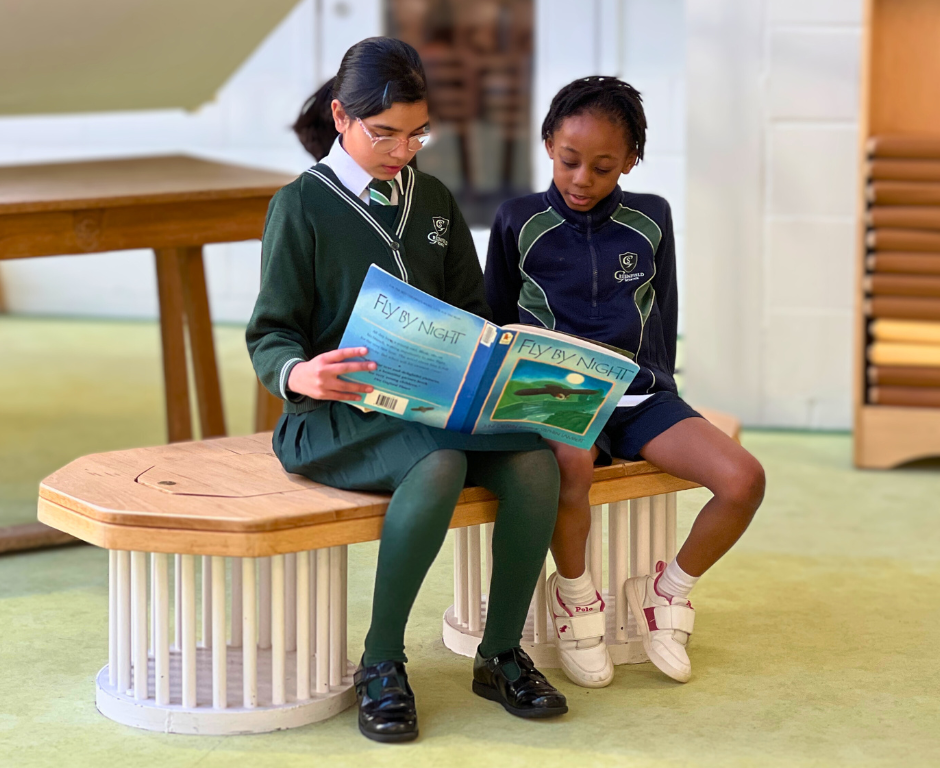
1. Starting the Reading Journey – Start Early!
Even during infancy, a child can look at pictures and listen to your voice. Read aloud to your child and point to the pictures on the page, saying the names of the objects that appear. This provides your child with two sources of information: an understanding of real-world objects and an understanding of the importance of language. Even when your child can read by themselves, you should still read aloud together for practice.
Reading processes and enjoyment starts in the Little School Nursery (6 months)
Systematic phonics and reading strategies develop as children move from Nursery to Year 6.
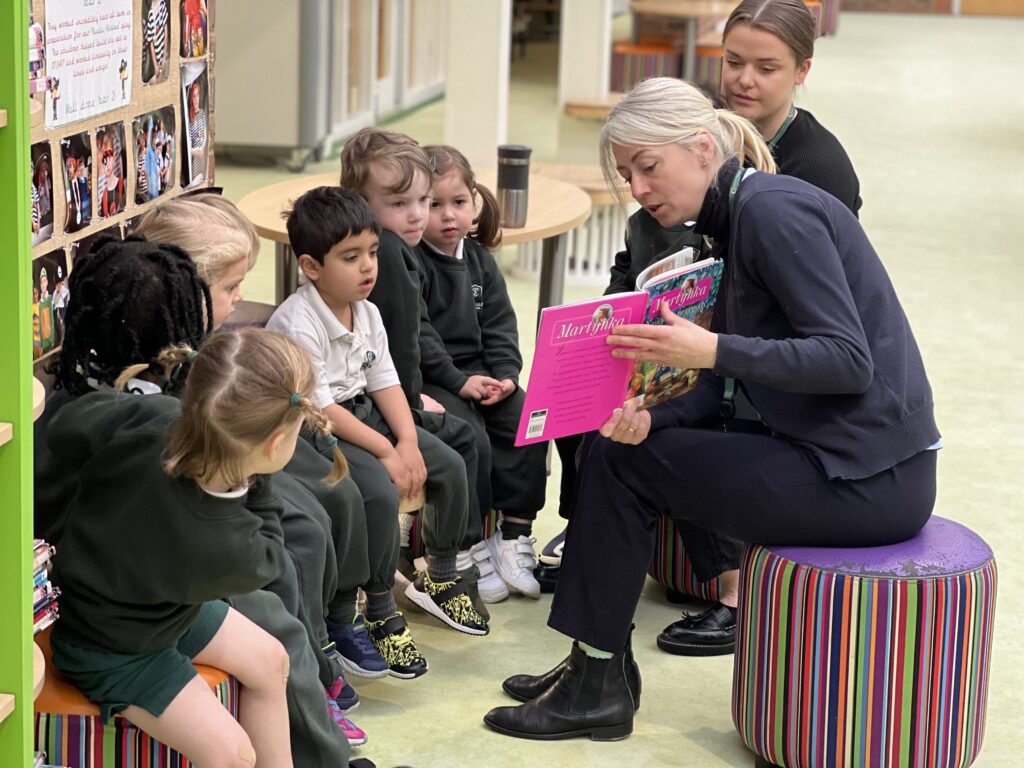
2. Choose Engaging Books
Introducing a variety of genres and formats including non-fiction, fiction, poetry and graphic novels is essential. Familiarising children with a diverse range of genres will help them to discover their own preferences but also open their eyes to a range of different worlds, cultures and characters allowing their imagination to be stretched and thrive. There are plenty of stories that include valuable real-life relevant topics – where you can then link the book topic to a new experience in their life, creating a deeper comprehension of shared experiences.
Alongside the school reading scheme, all children are given the opportunity to visit the library and make choices about the text type they want to focus on. The library books run alongside reading scheme books up until Year 3. Most children finish the reading scheme in Year 3 and are guided to chapter books. The element of free choice is empowering at this age – given the previously embedded knowledge of different reading styles, children will choose a wide variety of books on their own accord.
Having a focus text over a period of time is scientifically proven to improve engagement and enjoyment. Text-based activities and approaches develop children’s imagination, language and vocabulary prior to writing, supporting the development of children’s planning and ideation for writing.
At Greenfield, books are embedded into the curriculum over a two-week cycle in English.
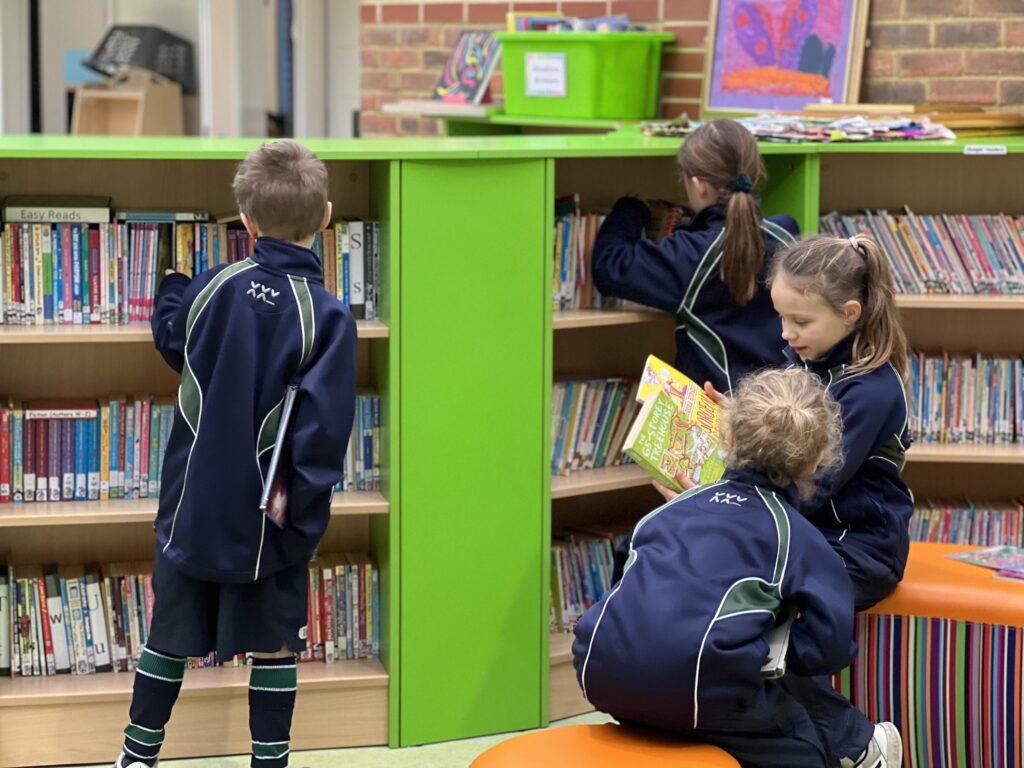
3. Lead by Example
Be a reading role model; let your children see you regularly reading. This sets positive examples and reinforces the idea that reading is a valued and enjoyable activity. Book clubs in and out of school are invaluable for enriching the reading experience and providing a sense of community and safety to explore ideas.
At Greenfield the children participate in author visits and workshops, bringing their reading alive and connecting reading to their interests and hobbies.
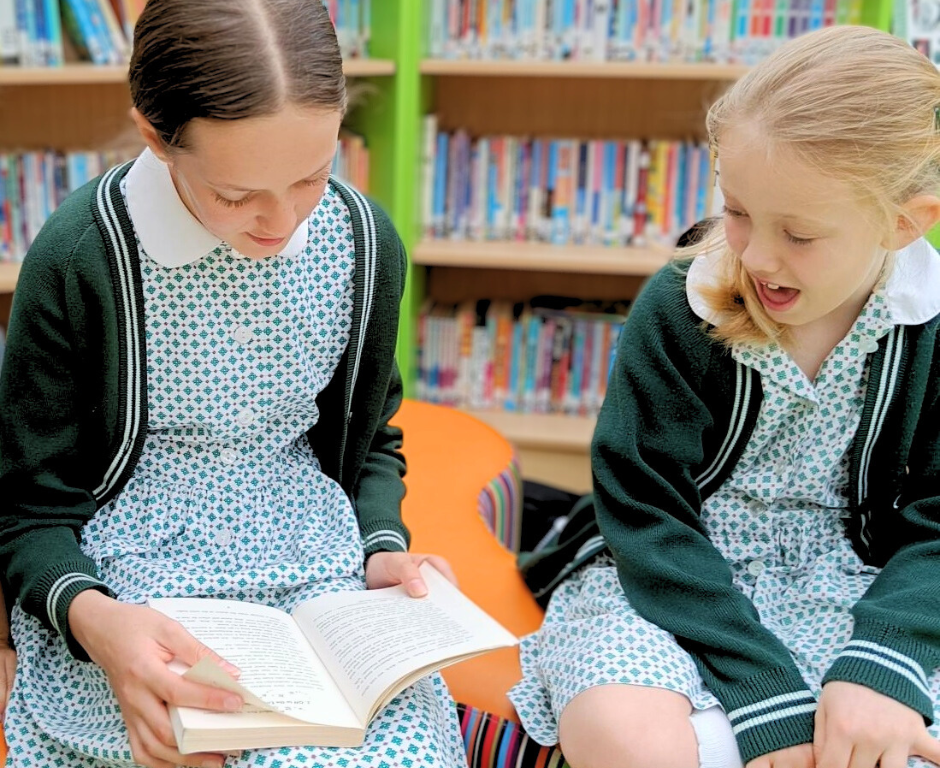
4. Create a Reading Environment
Exploring and choosing books independently is key as well as planning storytelling sessions and library events. Cosy reading spaces that are comfortable and inviting are essential both at home and at school. A special reading space can make the reading experience more enjoyable – and for energetic children who prefer the great outdoors, continue their reading environment with outdoor learning and draw inspiration from natural surroundings.
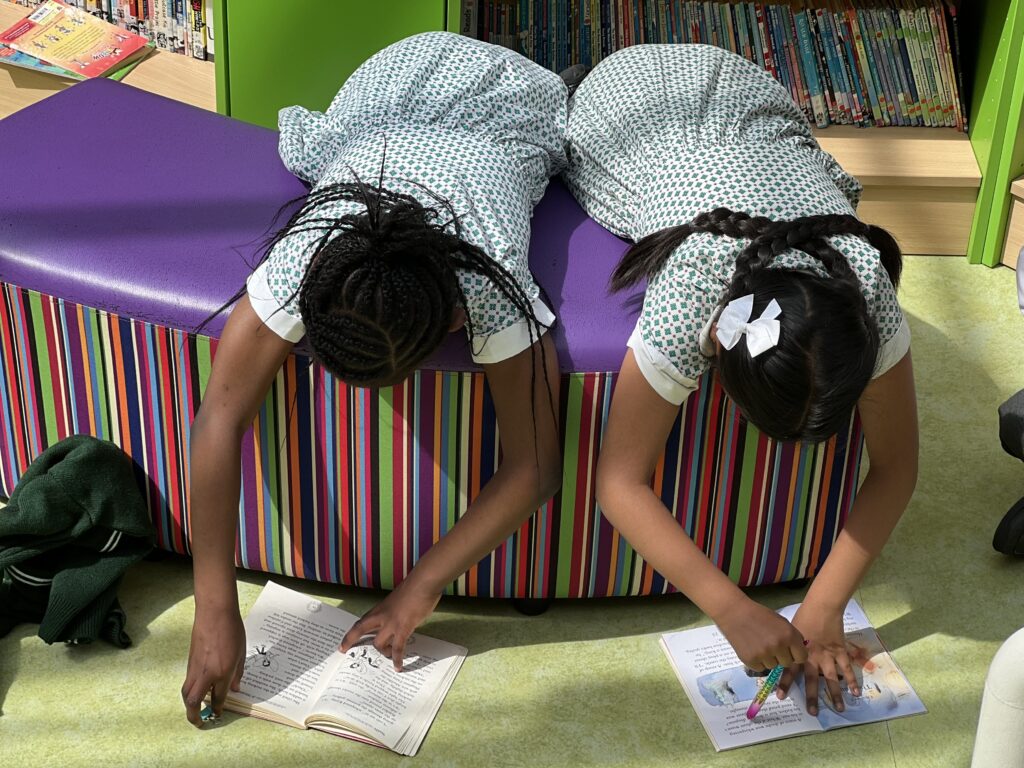
5. Patience and Support
Have patience in the process of their reading journey. Adding challenge and speed at key points boosts their confidence to make progress, and reading experiences are always celebrated.
At Greenfield, initiatives and structures are put in place to plug any gaps in their learning, as well as initiatives to develop reading for pleasure.
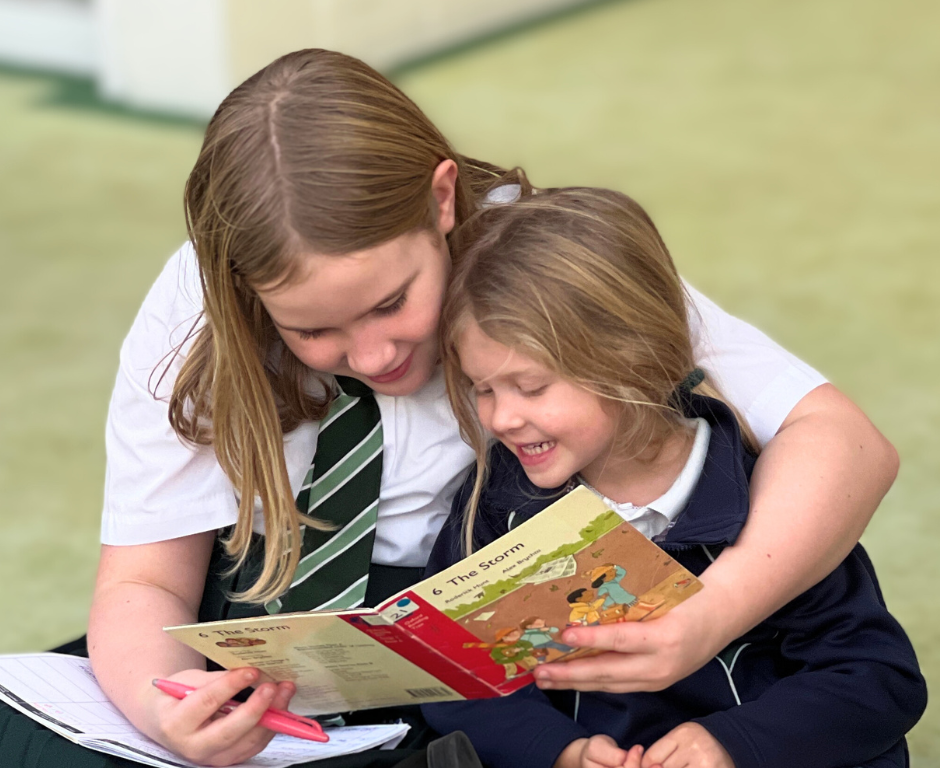
6. Reading Consistency
A consistent and high level of reading skill is developed at honed at school through systematic phonics training, regular 1:1 reading sessions, guided reading and skills-based focus sessions.
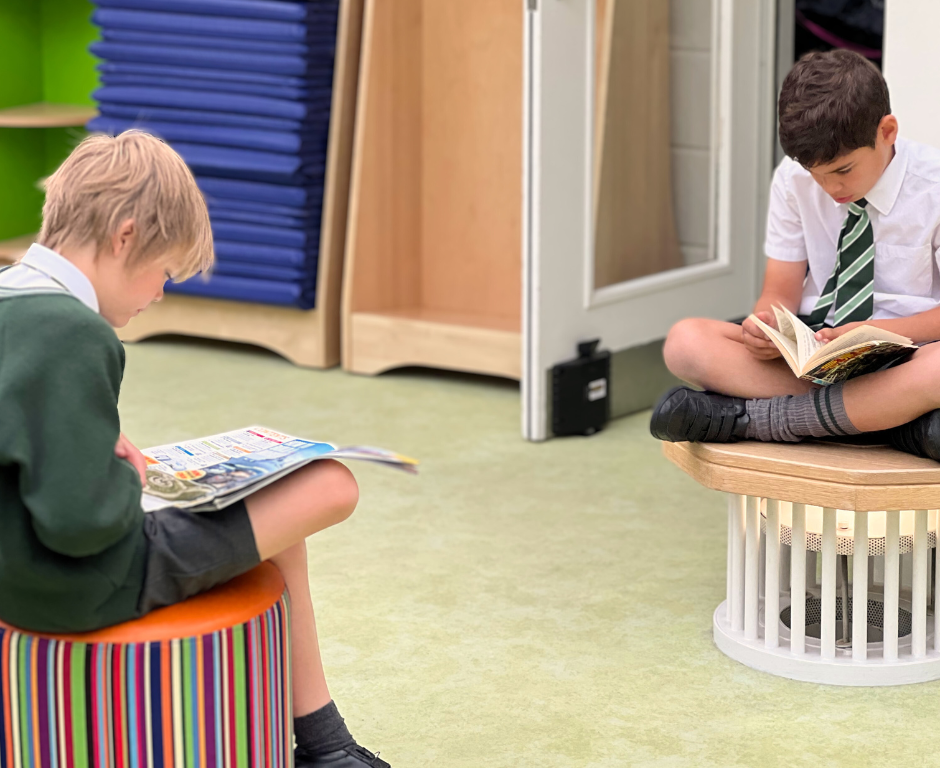
7. Celebrating Achievements
Reading should always be celebrated as it creates a sense of accomplishment and a reward for taking on a challenge.
Every child receives a Reading Passport that they look forward to filling up with stories they have read, whilst the English department sets school-wide reading challenges.
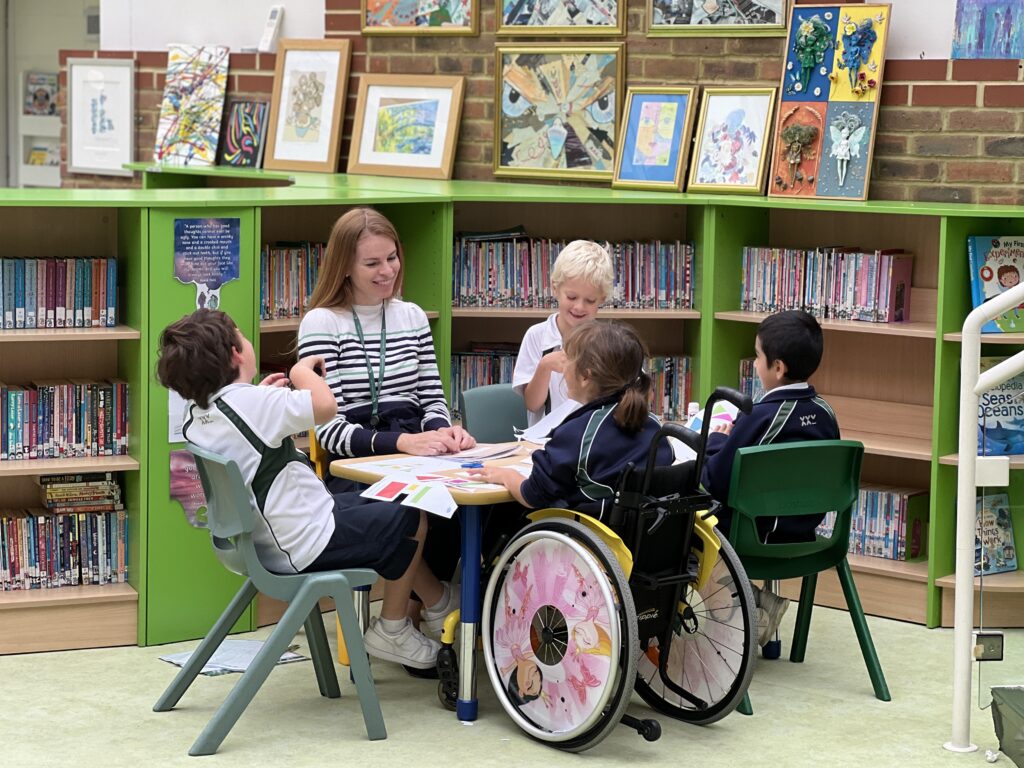
8. Family Engagement
Reading together is a wonderful way to enhance and develop your child’s literacy in a different setting. Greenfield’s weekly newsfeed is a great opportunity for this, where children can see photos or videos of their peers and put them together with the written content. Parents are invited to be a part of their child’s reading journey every step of the way at Greenfield with a range of parent workshops, as well as 1:1 reading expectations. Parents participate in a range of co-curricular events at school such as open classrooms and storytelling sessions.
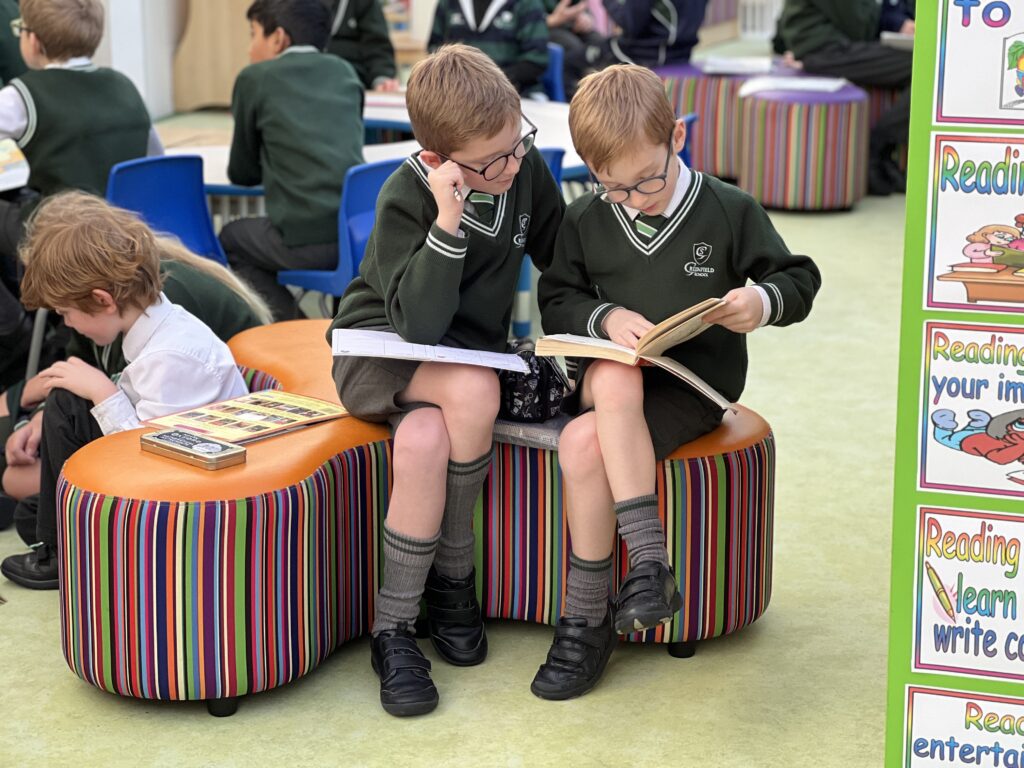
Reading empowers children to learn independently. Once they can read, they have the tools to explore and acquire knowledge on their own, reducing their dependence on direct instruction.
In conclusion, teaching children to read is not just about imparting a basic skill; it’s about opening doors to a world of possibilities. It equips them with the tools they need to navigate the complexities of life, fosters a love for learning, and lays the groundwork for a successful and fulfilling future.

